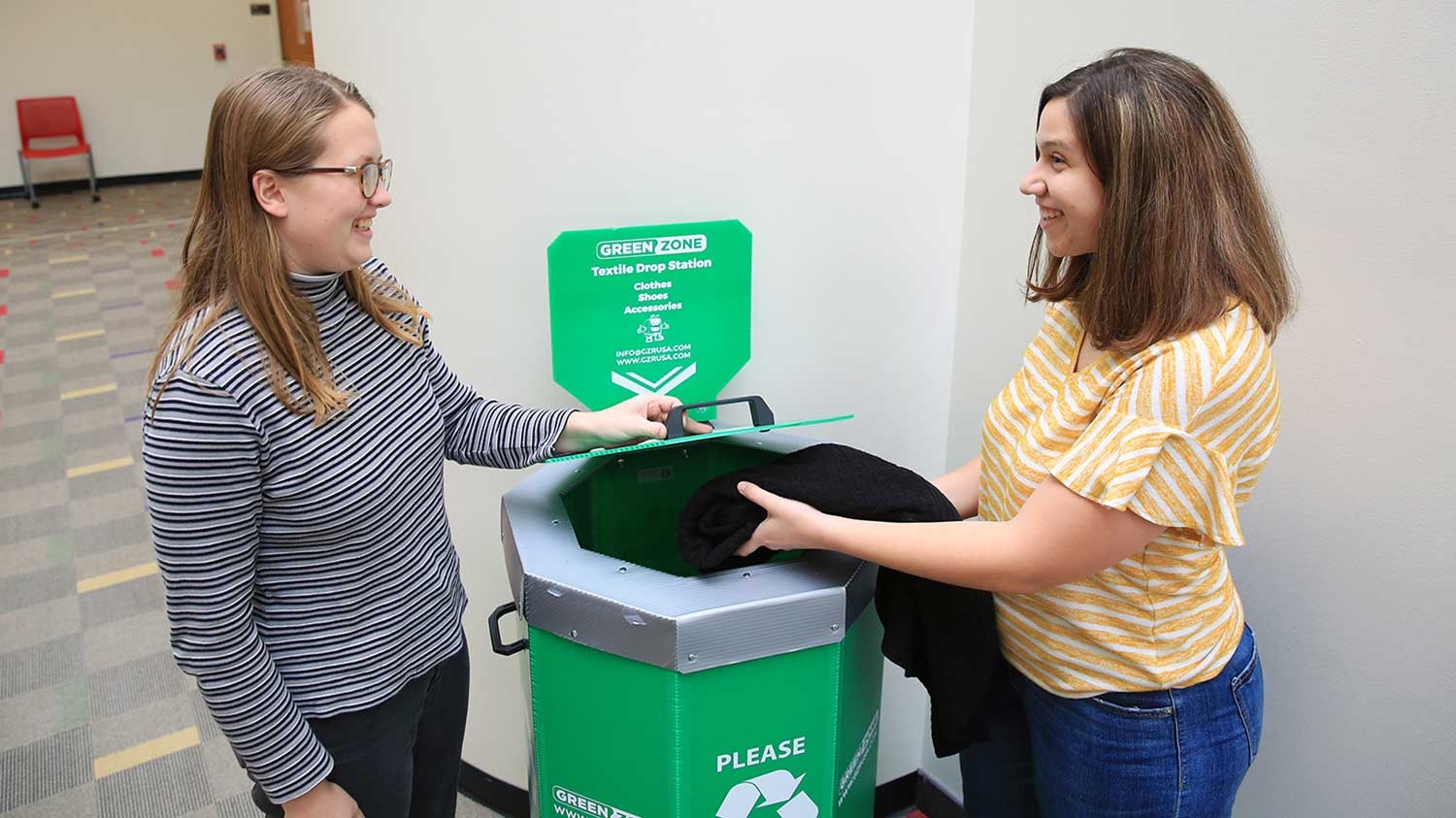Sustainability Committee Makes A Difference

At Wilson College of Textiles, a committee of students, faculty and staff are demonstrating the power of working together to make a difference.
It started in 2017 when Wilson College formed its first Sustainability Committee of employees and students interested in implementing sustainability projects within the Textiles Complex buildings. Fast forward a few years and the committee has made numerous sustainability improvements while also earning the 2021 NC State Sustainability Award in the Innovation and Impact category.
“We have very active people on the committee…passionate people willing to go beyond,” said committee member Karen Leonas, who is a professor of textile sciences. “Each year we look at ways that we can improve sustainability. A lot of what we do is generated by our students and the Wilson College community, and we try to figure out if we can do this.”
With a grant from the NC State Sustainability Fund, the committee is amid an effort to implement compost collection through the purchase of a composting dumpster and collection equipment for the building. Other projects have included installing five water bottle refilling stations to reduce plastic bottle waste, providing K-cup recycling options for multiple break rooms, and adding a dishwasher to enable use of reusable cups during industry short courses.
To address the problem of textile waste, the College partnered with Green Zone to create a textile recycling program that has diverted more than 5,500 pounds of textile waste from landfills. This effort has also generated more than $1,500 for the Greater Good Textile Group, a sustainability-focused student organization.
These successful projects also now contribute to the college’s 2020-2023 strategic plan, which includes sustainability as a college priority and core value.
“We’re trying to be sustainable in everything we do,” said sustainability committee member Shawn Dunning, who is also the college’s assistant dean for finance and operations.
In the research labs, many Wilson College faculty explore areas related to the U.N. Sustainable Development Goals, such as reducing water use in textile production, addressing wage and working conditions, or exploring more sustainable fiber sources. That sustainability-related research extends to the classroom, where many courses have integrated sustainability modules.
“Because [the textile] industry is so dynamic, we are constantly looking at our curriculum to update it,” Leonas said.
Real-world learning is also incorporated, such as in the Textile Engineering, Chemistry and Science senior design course that often includes sustainability-related design challenges.
“Partners give us real-life situations, which are so important in engaging students in hands-on opportunities to learn,” said committee member Melissa Sharp, who is the associate director of Zeis Textiles Extension. “Hopefully in five to ten years, these students will be [sustainability] changemakers.”
Already, plenty of students are making sustainable change right now at Wilson College. Every year the Sustainability Committee takes on a few projects with more aspirations ahead, such as integrating solar energy and developing a community learning garden that grows textiles-related crops.
“Our students have driven a lot of what [the Sustainability Committee does]. They are creative and energized,” Leonas said.
- Categories: